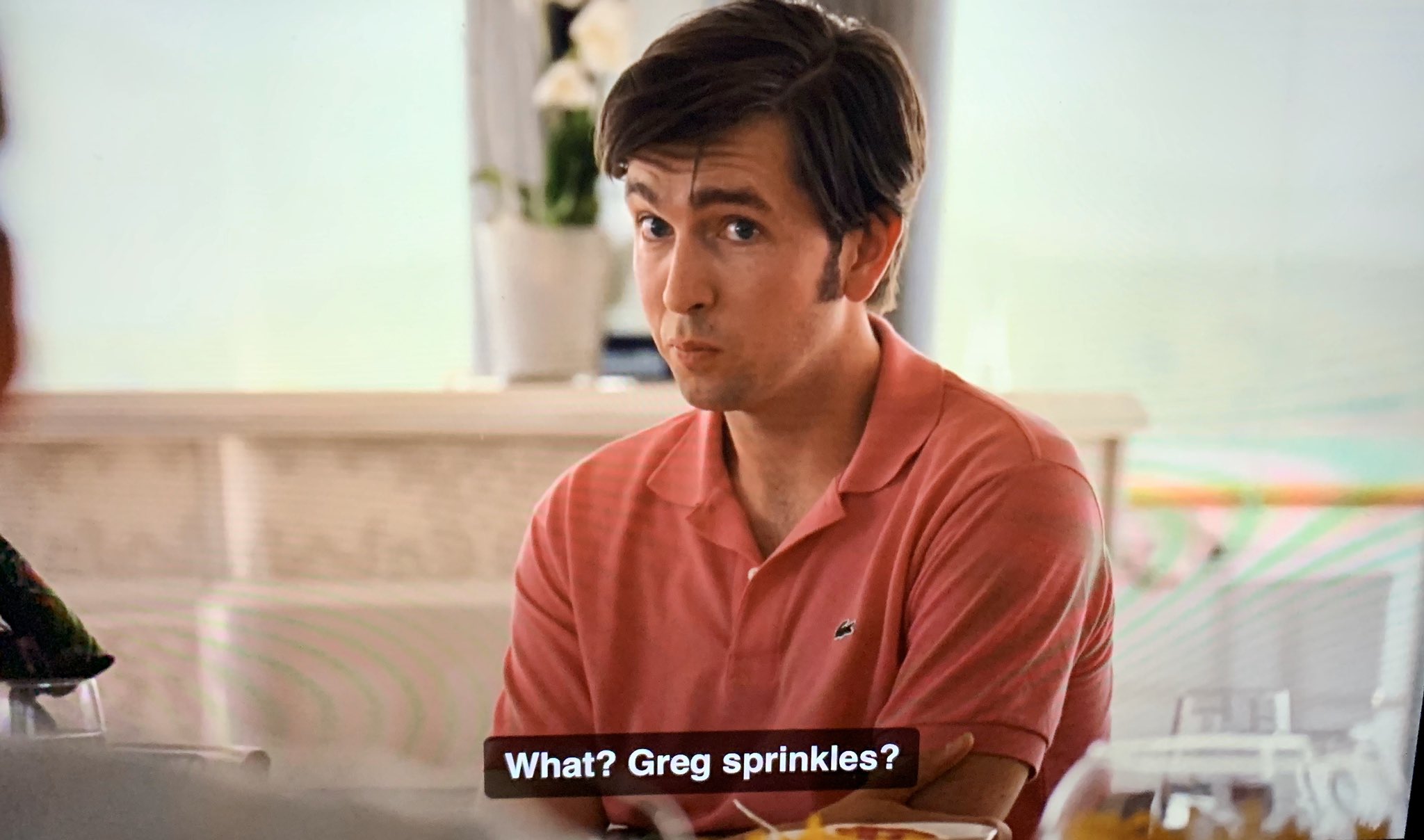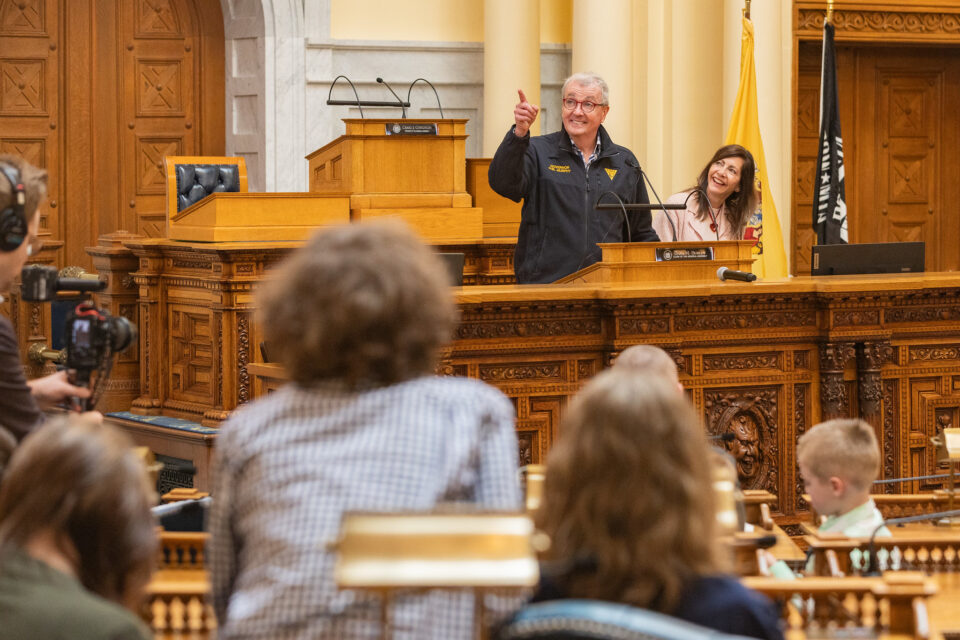
SCOOP: Murphy’s Ed Department Gives Up on Student Success After High School
December 2, 2021
ANALYSIS: NJ Ed Department’s Proposal for Dumbed-Down Tests Is 64 Floor Redux
December 6, 2021From Murphy to McAuliffe: How Badly Did School Closures Hurt the Democratic Brand?
Camden Couty Democratic Party Chairman Jim Beach circulated an email this week in which he tallies the votes in Camden County for Phil Murphy and Jack Ciattarelli (61% and 37% county-wide) and shares an analysis of the Virginia gubernatorial contest between Terry McAuliffe and Glenn Youngkin, particularly the huge role education played in VA voters’ decision to swing to the Republican candidate. The VA analysis was done by a group called ALG Research and the findings are based on the results of online focus groups conducted November 8-9, 2021 among Biden 2020 voters who were swing voters or actively considered both candidates.
The results are a warning to both the New Jersey and national Democratic Party about its weak standing even among those who consider themselves relatively liberal. Chief among their complaints are that “they felt Democrats closed their schools and didn’t feel bad about it.” One Biden voter “stated flat out that her vote for Youngkin ‘was against the party that closed the schools for so long last year.’” The general feeling is that Democrats don’t care about what parents think: “They broadly don’t feel heard right now when it comes to schools, and they blame liberals and Democrats.” Critical Race Theory is not a problem in itself, but these voters object to feeling like they’re “walking on eggshells” when talking about race. From the findings: “they felt like racial and social justice issues were overtaking math, history, and other things. They absolutely want their kids to hear the good and the bad of American history, at the same time they are worried that racial and cultural issues are taking over the state’s curricula.”
It’s worth noting here that Murphy is cut from the same political cloth as McAuliffe, defining himself as a “progressive” and bowing to teacher union pressure when making decisions about school closures. Also, Ciattarelli got 40% more votes than Kim Guadagno (Murphy’s opponent in 2017) and flipped three counties red (Atlantic, Cumberland and Gloucester); he also got more votes in 9 counties than Chris Christie and “scared Murphy half to death.”
Here is the memo from ALG Research:
Qualitative Research Findings – Virginia Post-Election Research
We conducted focus groups among suburban NOVA and Richmond Biden voters to understand why they swung to Youngkin or seriously considered doing so. A few things stood out to us about these voters, where our national and Virginia problems compounded each other to swing the state to Republicans:
National Challenges
- Our weak national brand left us vulnerable. Voters couldn’t name anything that Democrats had done, except a few who said we passed the infrastructure bill. That bill didn’t overcome their opinions that we have spent the last year infighting and careening from crisis to crisis.
- Voters are unhappy with the direction of the country and don’t think we get it. They aren’t hearing solutions from us, they don’t think we’re doing anything to address the big issues (lack of workers + rising prices), and in general they just aren’t seeing the smoother ride they thought they’d get after having voted out Trump.
- Voters believe the economy is bad, and no amount of stats can change their mind (at least in the short term). Jobs numbers, wage numbers, and the number of people we’ve put back to work don’t move them. We should still talk about these (more the wage and back-to-work numbers), but we should realize that they will have limited impact when people are seeing help wanted signs all over main street, restaurant sections closed for lack of workers, rising prices, and supply disruptions. Even where things are getting better, Biden doesn’t get credit.
- Voters think we are focused on social issues, not the economy. They aren’t hearing us talk about the economy enough, and the things they are hearing about our agenda (people mentioned the child tax credit, paid leave, free college) don’t have to do with getting people back to work or taking on the cost of goods. That’s deadly in an environment when it’s the top issue.
State-Specific Issues
- The Youngkin = Trump hits didn’t work very well. We’re not saying this was a mistake, or that Terry had a better message he left on the table. We don’t know. But we do know that if our most-effective message in 2022 is that Republicans = Trump, we’re going to get creamed.
- Youngkin had a persona and a positive issue (the grocery tax) that broke through. They liked him, related to him, and thought he was going to do something good for them.
- Terry got no benefit from being Governor and was the status quo. Some people in the groups mixed him up with Northam, and zero respondents could remember anything he did as Governor. He also was more of the same for them, at a time when they are frustrated with the status quo.
- Education dominated—not so much CRT (which was a problem) but more broadly parental control + shutdowns. These swing voters didn’t agree with what they thought the liberal position on race in schools was. However, it wasn’t as salient as the fact that they felt Democrats closed their schools and didn’t feel bad about it. They also knew about his debate quote on parents; it clearly burned in and resonated with them.
We’re realistic about our ability to message our way out of this problem. People aren’t feeling good, and they’re always going to blame the party in power for that. But if people don’t think we’re tackling economic issues, are putting government + closures before parents on schools, and only want to make the election about Trump, we’re only amplifying the natural dynamics of a midterm election.
Key Findings:
- Education dominated the Governor’s race with these Biden/Youngkin voters. It was the issue these voters heard most about, and it’s what they were most likely to say the election was about. They did not necessarily describe it as the top issue facing the country; most pointed to the pandemic and resulting economic hardships. But in Virginia, it dominated.
- School closures + COVID policy were a bigger factor than CRT. These voters were more animated talking about their dissatisfaction with their local school districts’ handling of COVID. They felt buffeted by changing and inconsistent policies and concerned about the impact on student learning loss, and there was a sense among some that Virginia was not following the science by keeping schools closed later than other states. One participant, a Bidenvoter, stated flat out that her vote for Youngkin “was against the party that closed the schools for so long last year.”
- The “parents” gaffe was sticky, but it wasn’t the whole of the problem by any stretch. People remembered the quote about parents and schools from McAuliffe, and it bothered them. It said something about Terry and how he’d run the schools to them. However, the problem was that it played into an existing narrative that Democrats didn’t listen to parents when they kept the schools closed past any point of reason and that they’d close the schools again over parents’ objections. They broadly don’t feel heard right now when it comes to schools, and they blame liberals and Democrats.
- CRT in schools is not an issue in and of itself, but it taps into these voters’ frustrations. Voters were nearly unanimous in describing the country as divided and feeling that politics is unavoidably in their faces (“It went in one year from extreme politics in one direction to extreme politics in another direction.”). They feel that people’s ability to have a civil discussion has vanished, and that they have to walk on eggshells even on seemingly innocuous topics. This extends to discussions around race in schools, where they were less concerned with critical race theory as an idea or curriculum but expressed frustration with the black-and-white approach they see taken toward such complicated subjects:
“In an attempt for inclusion, there’s a lack of respect for opinions that don’t match yours identically. It’s so divisive and if you don’t think exactly what I think then we can’t even be friends.”
“I feel like what I was taught in school was mainly Virginia history, and it was all white people and leaders. So I understand why they’re doing that, but I feel like there’s a certain way to go about those things.”
“It doesn’t need to be aggressive, in your face. It needs to be smoother and with a variety of approaches, and not accusatory.” “It’s really not cool right now to be anti-progressive. People don’t want to be cancelled and they want to be inclusive.”
This isn’t about “critical race theory” itself, and we shouldn’t dismiss that CRT isn’t real and think we’ve tackled the issue. Many swing voters knew, when pushed by more-liberal members of the group, that CRT wasn’t taught in Virginia schools. But at the same time, they felt like racial and social justice issues were overtaking math, history, and other things. They absolutely want their kids to hear the good and the bad of American history, at the same time they are worried that racial and cultural issues are taking over the state’s curricula. We should expect this backlash to continue, especially as it plays into another way where parents and communities feel like they are losing control over their schools in addition to the basics of even being able to decide if they’re open or not.
- Trying to graft Trump onto Youngkin fell flat with these voters. They describe Youngkin positively as calm, well-spoken, and projecting warmness, while directly contrasting him with Trump. In fact, their descriptions of Youngkin better mirror how they talked about Biden as bringing dignity and civility back to politics. Moreover, they saw Youngkin’s campaign as being positive and forward looking, specifically citing his pledge to raise education standards and to cut grocery taxes, while from McAuliffe’s campaign they only remembered negative campaigning and bringing up Trump.
o “[Youngkin] seemed like he would fit in at the soccer field on a Saturday morning.”
o “I liked his tone, it seems warm and insightful rather than hostile or antagonistic.”
o “I think if he had been Donald Trump he wouldn’t have been elected, no one wants that anymore.”
o “He has much more humility and much more respect. In his differences from Trump, he’s not so harsh or brash or in your face, or disrespectful. He’s actually intelligent and he conducts himself respectably in public.”
o “He’s well spoken, well-educated, he seems calm, seems like a people person.”
- McAuliffe was seen as old news, with no memorable accomplishments in his previous term or forward-looking agenda. These voters came across as lukewarm on him, having nothing particularly egregious to complain about but also nothing to ask for a second term of. They described his first term as “not memorable” and could not point to any significant accomplishments he had as Governor, and furthermore saw him as a “politician” who appeared disconnected from voters and did not give straight answers.
- Biden is hurting, even among supporters. None of these people would have switched their vote with hindsight. They also do not necessarily blame him for ongoing problems with the delta variant, inflation, or supply chain bottlenecks. But at the same time, these 2020 Biden voters had little positive to say about him right now, and many described disappointment or a sense that he is not doing well. They were reluctant to say he’s not up to the job, but they don’t feel like he’s getting it done right now.
• Democrats have no real brand among these swing voters, whose 2020 vote was first and foremost against Trump. Most could not articulate what Democrats stand for. They could also not say what they are doing in Washington, besides fighting. They were vaguely aware of the infrastructure bill in Congress and pieces they’ve heard are in the reconciliation bill (mainly tuition forgiveness and free college). They could not define Biden as being to the left or right of the average Democrat, and mostly saw Democrats as being in tune with him. Whatever their view is of Biden is all they have to go on in judging Democrats.
- They thought Democrats are only focused on equality and fairness and not on helping people. None of these Biden voters associated our party with helping working people, the middle class, or people like them. They thought we were more focused on breaking down social barriers facing marginalized groups. They were all for helping marginalized groups, but the fact that they couldn’t point to anything we are doing to help them was deeply concerning.
- They didn’t want a bigger BBB or a smaller BBB—the only side they take in that is “stop fighting.” These Biden/Youngkin voters didn’t think Biden was more liberal or more conservative than they expected, and they also didn’t have real complaints about Democrats a) spending too much or b) cutting key programs from BBB. Their problem was that they think that we are doing nothing but fighting, when they want action on the economy.
- If we are running 2022 on “Republican candidate = Trump,” we’re getting killed. Again, this very well may have been the best arrow the McAuliffe campaign had in its quiver—the anti-vaccine stuff might not have worked, he might have been just as hard to tie to January 6 as he was to Trump, and his business record may not have resonated. That was outside the scope of these focus groups. But it’s clear that simply equating Youngkin to Trump was not credible.
- Don’t underestimate the power of a positive message that speaks to people’s every day lives. This may be an obvious point, but Glenn Youngkin tapped into a major issue (rising prices of meat + other groceries) and proposed a solution (ending the grocery tax) that showed he got the problem. They also mentioned Youngkin wanting to increase funding in schools and give parents more of a say in their education.




